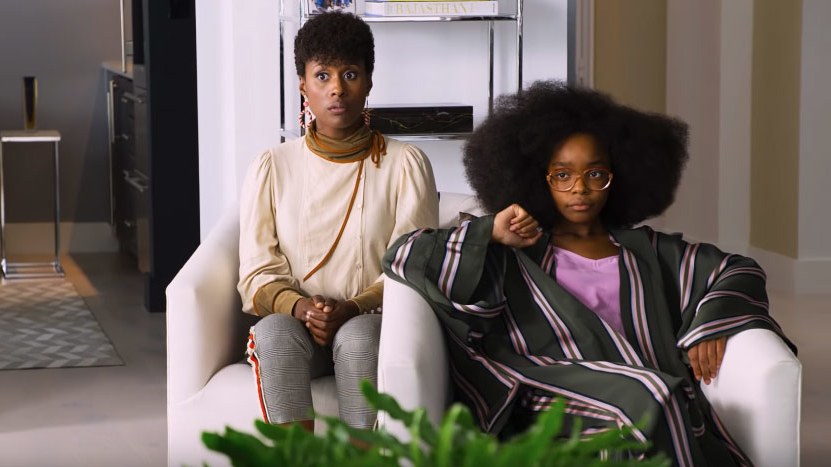
Audiences have seen movies like Big or 13 Going on 30 before, where white children have the physical forms of adults. Tina Gordon Chism’s Little has the same premise with a different spin, where a black adult has the physical form of a child. Does she, Adult Jordan Sanders (Regina Hall) deserve such a fate? Yes she does. She basically bullies everyone in her path, both at her unconventional home life and at work. She then bullies a daughter of a doughnut truck operator. And when she does that, the girl wishes Adult Jordan to turn back into her little self (Marsai Martin).
That child’s outlandish wish comes true because this is a fantasy movie, after all. There’s a similarity between Little and the other movies I mentioned – that its main characters have made up one percent-er jobs. Jobs like Editor In Chief at a fashion magazine and, in this case, the CEO of a tech company. These movies serves are fluffy aspirations of people living their best lives, which is only half true here. By inverting the premise and making Adult Jordan little, Jordan is reliving her past. Her daily nightmare, when it was normal for others to push her around, returns.

Martin, at ten years old, adorably pitched this movie as if it was an original concept. Nonetheless, her performance makes her Little‘s best asset. She sells Jordan’s initial shock at a boy pushing her, the first of many indignities she faces as a child. She also sells what is one of the few good lines in this film. One that helps confirm the movie’s magical premise to her assistant April (Issa Rae). Most critics deride child or teen acting as loud acting, but the reverse takes place here, when she softly kills a line.
Which is the exact opposite of what her adult counterpart, Hall, does. Constantly working for two decades now, the underrated actress became a critic favorite since Girls Trip. And her role there as a problematic capitalist, is one of the many archetypes she can usually do well. Someone can write a dissertation of problematic black capitalism and authority in contemporary studio cinema. The same goes for the movies that William Packer produced, including What Men Want, which position urban areas in the South as places of black innovation. I will not because I am not the right person. Anyway, she reprises the boss lady archetype here, the movie endorsing the behavior it thinks it’s chiding.
This could have been an interesting comedy about bullying and how two – or three – black girls and women deal with it. Jordan deals with it in the worst way possible, and her turning back into a teen is some Dickensian way of course correction. This spin on that old tale would have been great had not for its mixed messages. It also doesn’t help that Chism and Tracy Oliver’s script has an unwieldy air that’s reminiscent of bad improv comedy. This representation of black female nerds is tolerable, but they deserve better.
- Release Date: 4/12/2019

